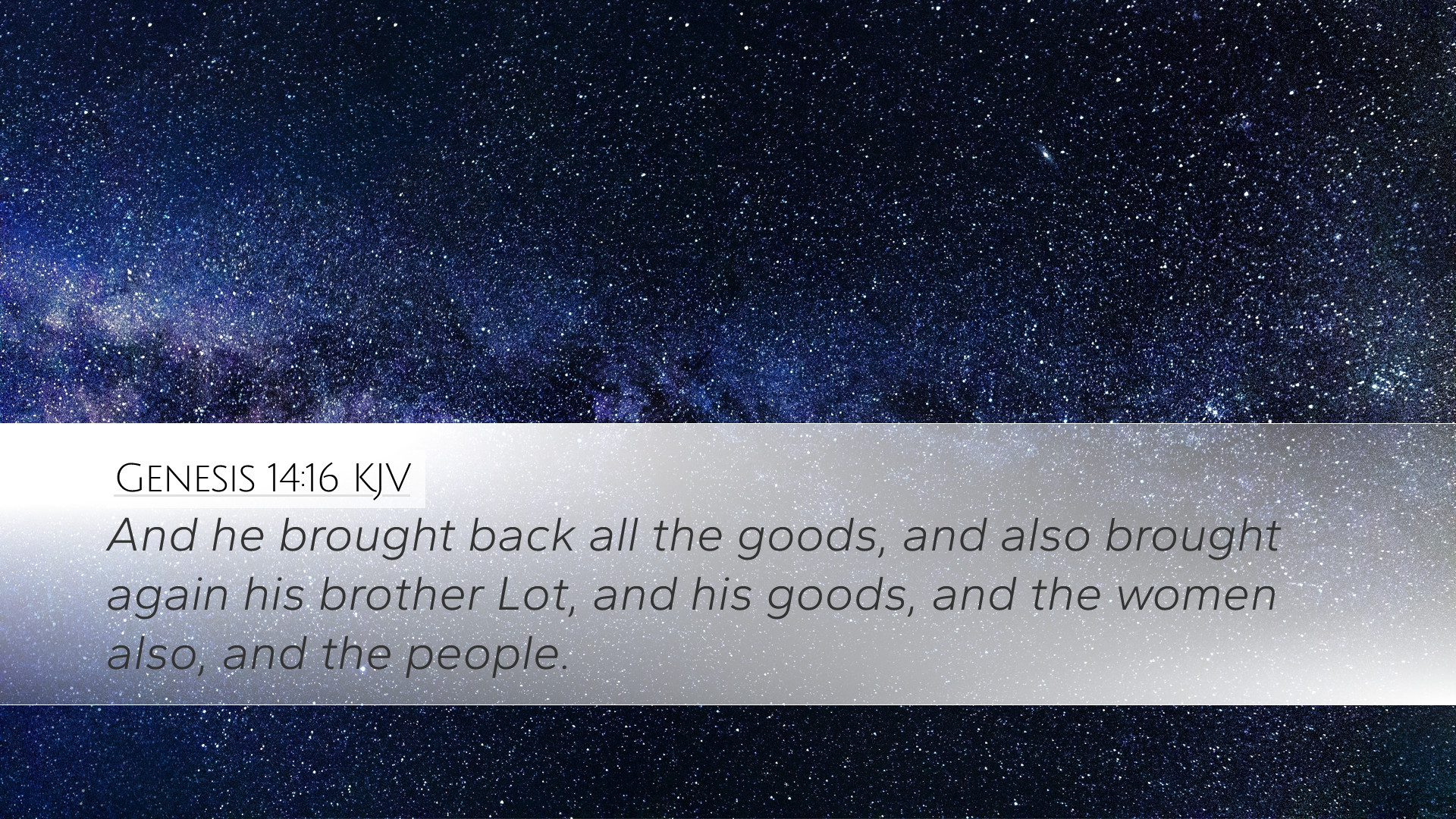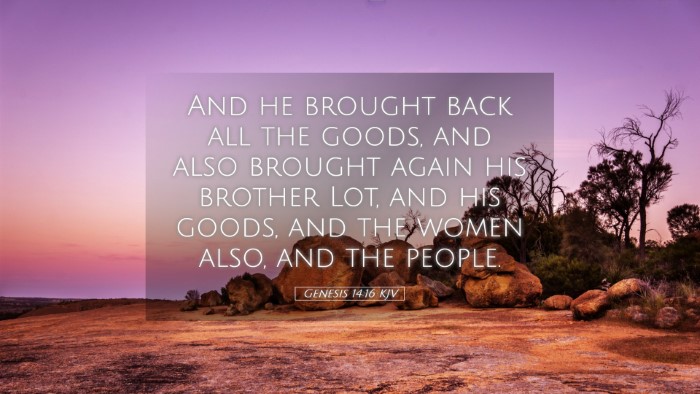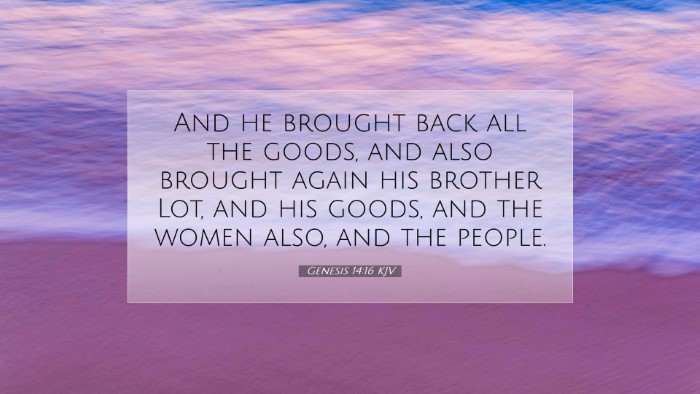Commentary on Genesis 14:16
Genesis 14:16 states: "And he brought back all the goods, and also brought again his brother Lot, and his goods, and the women also, and the people." This passage is crucial as it recounts a significant event in early Biblical history. The return of Abram's nephew Lot signifies restoration and reflects on themes of loyalty, duty, and divine intervention. In this commentary, insights from Matthew Henry, Albert Barnes, and Adam Clarke combine to provide a multifaceted understanding of this verse.
1. Contextual Overview
Prior to reaching verse 16, the narrative details a conflict where Lot was taken captive by Chedorlaomer, king of Elam, and his allies. Abram's decisive action to retrieve Lot showcases his character as a protector and leader.
1.1 Matthew Henry's Insights
Henry emphasizes Abram's concern for Lot, depicting him as a devoted uncle willing to risk everything for his family. Abram's actions reflect a deep moral obligation, illustrating the importance of familial responsibility.
1.2 Albert Barnes' Analysis
Barnes highlights the military aspect of Abram's pursuit, noting the significance of his strategic planning and reliance on a small force. This reliance on God’s providence rather than sheer numbers reveals a theme of faith in action.
1.3 Adam Clarke's Reflection
Clarke notes that this act of delivering Lot serves as a precursor to various Biblical themes of redemption and restoration. He points out that it symbolizes the broader narrative of humanity's need for salvation and divine rescue.
2. The Act of Restoration
The verse emphasizes restoration of goods and people, resonating with theological implications. The act of bringing back signifies more than just physical recovery; it reflects a spiritual and communal aspect of healing.
2.1 Familial Loyalty
Henry comments on Abram's familial loyalty, suggesting that the narrative directly mirrors the responsibility members of faith communities have towards one another. The act of restoring Lot illustrates an ideal of supportive kinship.
2.2 Community and Unity
Barnes points out that bringing “the women also, and the people” back indicates the communal responsibility Abram felt. He underscores that faith communities must unify in times of adversity, a theme relevant for today's church structure.
2.3 Spiritual Implications
Clarke expands on the spiritual implications of restoration. He suggests that Lot's rescue serves as a symbol of God's willingness to recover His people, drawing parallels to the ultimate redemption seen through Christ.
3. The Role of Divine Intervention
This verse does not merely recount a military victory but emphasizes the role of divine intervention in human affairs. Abram’s success is indicative of God’s favor and support.
3.1 Divine Favor
Henry emphasizes that Abram’s victory was not solely owing to his military prowess, but to God’s assistance. This points to a larger narrative within Genesis where God actively participates in the lives of His chosen people.
3.2 Providence and Protection
Barnes notes that God’s providence is evident in leading Abram to those who would follow him. His analysis shows how God’s unseen hand works through circumstances to protect those faithful to Him.
3.3 Theological Reflection
Clarke reflects on the broader implications of divine sovereignty in the unfolding events, suggesting that understanding God’s character as a protector can reassure believers in times of their own trials.
4. Application for Today
The themes present in Genesis 14:16 have significant implications for contemporary readers, particularly within pastoral and scholarly contexts. They provoke introspections on community, loyalty, and God’s providential care.
4.1 Pastoral Application
Pastors today can take inspiration from Abram’s willingness to engage in active rescue missions within their communities, echoing the call to protect and restore those who are vulnerable or lost.
4.2 Theological Reflection for Students and Scholars
For students and scholars, this passage provides a lens to explore the interplay of faith, action, and divine will. It invites theological inquiry into how believers can seek to embody God’s redemptive nature in their contexts.
Conclusion
Genesis 14:16 is a poignant reminder of the virtues of loyalty, the dynamics of community, and the sovereignty of God in human affairs. Through the insights of respected commentators like Matthew Henry, Albert Barnes, and Adam Clarke, readers gain a deeper understanding of the text's significance both historically and theologically. It serves as an invitation to reflect on one’s responsibilities within familial and faith communities, as well as an assurance of divine redemption in the lives of believers.


